 Iran’s Attack on Israel
Iran’s Attack on Israel
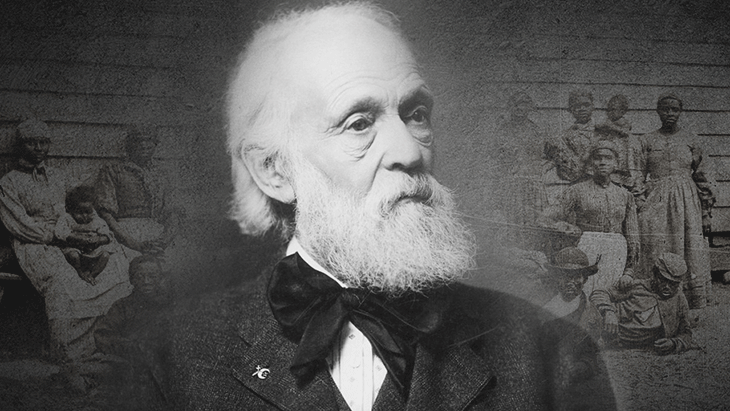

6 min read
August and Henrietta Bondi’s Jewish home was a stop for slaves fleeing North.
The stirring new movie Harriet brings the incredible bravery and heroism of Harriet Tubman to life. Born a slave in Maryland in the year 1822, she escaped to freedom in 1849, then returned to the South 19 times to help other slaves escape, ultimately shepherding over 300 slaves to freedom.
In 1863, while the Civil War raged, Tubman became one of the only women in US history to lead an armed military raid. She guided three boats full of Union soldiers along the Combahee River in South Carolina, attacking Confederate soldiers and freeing 750 slaves who worked in plantations along the river.
One of the most moving scenes in the film is when Harriet is led to a top-secret cellar where she is inducted into Underground Railroad and named a “Conductor” who guided slaves to freedom. It’s unclear whether this moving scene is accurate; historians disagree about just how organized the “Underground Railroad” was. What we do know is that as far back as the 1700s, a loose network of individuals – both Black and White – worked together to help hide runaway slaves and guide them to safety.
Historians estimate that 100,000 slaves escaped through the Underground Railroad between 1800 and 1850.
Historians estimate that 100,000 slaves escaped this way between 1800 and 1850, primarily from border states such as Maryland, as Harriet Tubman did. In the 1830s, as railroads crossed America, people began using the language of trains to describe this network, calling it the Underground Railroad, labeling hiding spots “depots” or “stops”, and dubbing people who risked their lives and freedom to help runaway slaves “Conductors”.
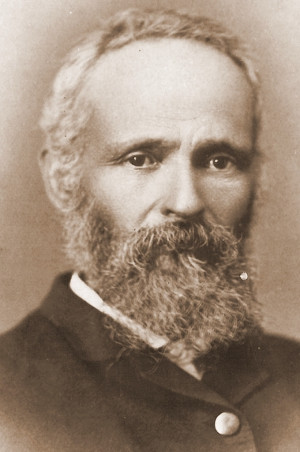 August Bondi
August Bondi
One important stop on the Underground Railroad was the home of a Jewish couple, August and Henrietta Bondi, in Greeley, Kansas. Their home became a refuge for an unknown number of slaves, and the Bondis worked tirelessly, as Jews, to oppose the horror of slavery.
August Bondi was born Anshl Mendel Bondi in Vienna in 1833 into a Yiddish-speaking family which was involved in radical politics. The family moved to St. Louis in 1848 and August worked various jobs throughout the Midwest where the treatment of slaves shocked him. Working on a riverboat, August travelled through Texas and later recorded his horror at the cruel outrages of American slavery: “During my stay in Texas I gathered a great deal of information on Southern life,” he wrote. “When in Galveston the howlings of the slaves receiving their morning ration of cowhiding waked me at 4 o’clock….”
August went duck hunting with a group of white ship captains and their children. When one enslaved oarsman accidentally dropped his oar and scared the ducks away, the teenage son of a ship captain shot the slave in the shoulder. August yelled at the teenager, and was shocked when all the white captains turned on him, chiding him and calling him an abolitionist for protesting this appalling cruelty. August later recalled that whereas he’d once felt indifferent to the plight of America’s slaves, he began to appreciate just how evil the institution of slavery was. He began to understand that his only option as a moral human being was to oppose it.
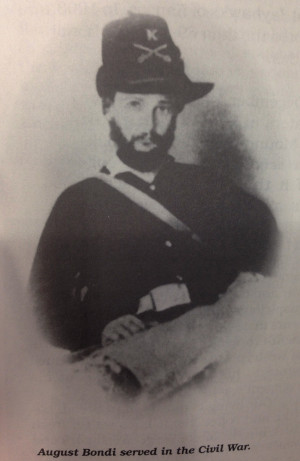 August Bondi fighting in the Civil War
August Bondi fighting in the Civil War
When Congress passed the Kansas-Nebraska Act in 1854, allowing the residents of Kansas to decide whether they would be a slave state or a free state once they were admitted to the Union, August moved to the Kansas Territory to work for the Free State Movement. It seemed that anti-slavery activists would win the election, but on election day thousands of heavily armed pro-slavery “Border Ruffians” poured into the territory from Missouri, seized control of polling places and ballot boxes, and declared that the Kansas territory had elected a pro-slavery legislature.
As pro-slavery zealots attacked anti-slavery activists, August joined with other anti-slavery activists in the Battle of Black Jack, on June 2, 1856. Anti-slavery forces captured 48 “Border Ruffians” who’d been menacing and attacking anti-slavery Kansans. (August fought alongside the notorious anti-slavery figure John Brown, though he later declined to participate in Brown’s most infamous adventure, the 1859 raid on an arsenal in Harper’s Ferry, West Virginia, in order to obtain arms for anti-slavery fighters. Brown was captured and executed for treason.)
At the Battle of Black Jack, August fought alongside two other Jews: Theodore Wiener, from Poland, and Jacob Benjamin, from Bohemia.
At the Battle of Black Jack, August fought alongside at least two other Jews: Theodore Wiener, an immigrant from Poland, and Jacob Benjamin, from Bohemia. August later described the battle: “We walked with bent backs, nearly crawled, that the tall dead grass of the year before might somewhat hide us from the Border Ruffian marksmen, yet the bullets kept whistling.” Theodore Wiener was right behind him and August asked him in Yiddish, "Nu, was meinen Sie jetzt? Now, what do you think of this?" In the thick of battle, Wiener respond in Yiddish-accented Hebrew: "Sof adom mavis – the end of the man is death."
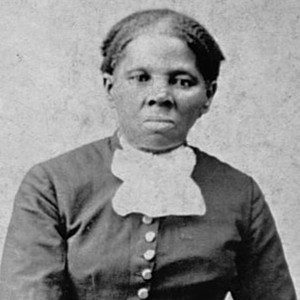 Harriet Tubman
Harriet Tubman
All three Jewish fighters survived the battle and August went on to work tirelessly against slavery. He married Henrietta Einstein in 1860 and the couple moved to Greeley, Kansas. Their home became a stop on the Underground Railroad. Runaway slaves knew that they could find a place to shelter there, receive food and rest for a time.
Faced with unfettered evil, August Bondi risked his life and freedom to help others.
The film Harriet can help give us a clue what their home might have been like. In the movie, Harriet Tubman walks for days, following the directions that a member of the Underground Railroad gave her, until she arrives at the home of a sympathetic Quaker who lets her stay in his home and gives her food, a change of clothes, and treats her with the dignity that every human being deserves.
When the American Civil War broke out in 1861, August Bondi volunteered for the Union Army. He was still fighting on January 1, 1863, when President Lincoln issued the Emancipation Proclamation, abolishing slavery in areas controlled by Union forces. A joyous August recorded in his diary: “No more Pharaohs and no more slaves.”
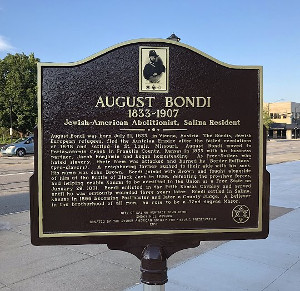
August continued to fight and was lightly wounded several times. In 1864, he was seriously wounded and left for dead by Confederate soldiers. He survived, and after the war, attended law school, eventually working as a lawyer, a farmer and a judge in the small town of Salina, Kansas.
Though he lived far from established Jewish communities, he always lived his life as a proud Jew. When his daughter got married, August insisted that her wedding be held in Leavenworth, Kansas, where there was a Jewish community and a rabbi could officiate. August died in 1907; a rabbi travelled from Kansas City to officiate at his funeral.
Faced with unfettered evil, August Bondi had the moral clarity not to explain away the horrors of slavery as so many Americans once did. Bondi was willing to risk his life and freedom to help others. We’ll never know the exact number of slaves he and Henrietta helped, but their shining example should continue to inspire us today.
